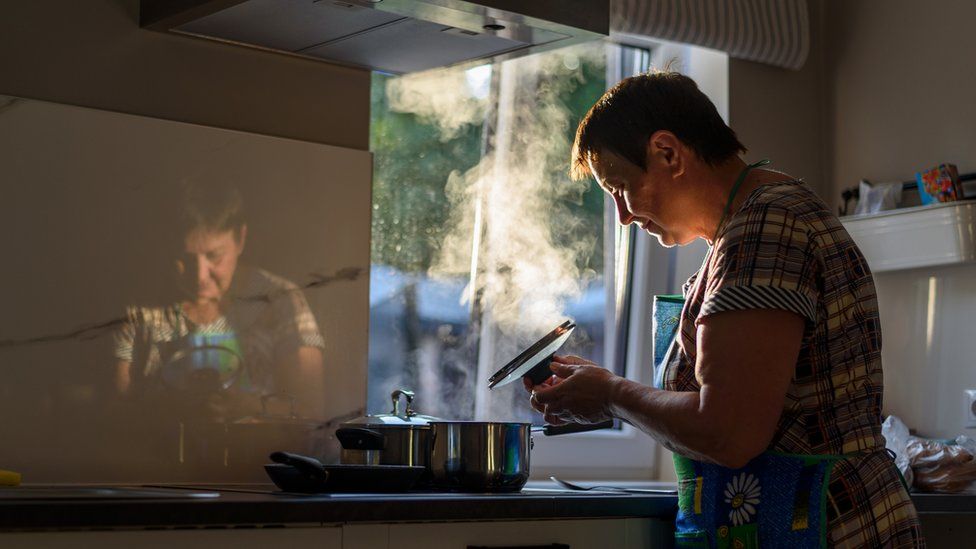
People are planning for smaller Christmases this year as prices soar, with a BBC survey uncovering growing concern about the squeeze on finances.
Three in five (62%) people polled said their Christmas and festive spending plans will be smaller than usual.
Adults with a household income under £40,000 are more likely to say their plans will be much smaller this year.
Prices rose at their fastest rate for 40 years again in September, with UK inflation expected to keep rising.
The price of food went up along with energy bills and transport costs.
The rising cost of food, fuel and energy dominate fears about rising costs, the survey of 4,132 shows.
Just 3% of those polled in the Savanta Comres survey for the BBC said their Christmases will be bigger than last year.
The survey was conducted earlier this month before Chancellor Jeremy Hunt reversed some tax cuts, saying that support on energy bills would be limited for some, and warned of further government spending cuts.
Kristie, from Somerset, says she’s worried this year’s festive lunch will be a microwave meal from Tesco.
Last year, she and her son had a proper Christmas meal with turkey, ham and vegetables.
But she says this year, she won’t be able to afford the electricity to use her cooker for the time it takes to prepare a turkey.
“I can’t afford to put on the cooker – I’m using the microwave. So how am I going to cook Christmas dinner for me and my son?”, she says.
“You’re better off getting a takeaway Indian meal from Tesco and sticking that in the microwave.”
Her plans for presents are also being scaled back, due to rising living costs.
“My son has made a pact with me that this year we’re going to get a stocking each and stocking fillers, because we can’t afford anything else,” she says.
People’s plans for Christmas have already been impacted for two years in a row due to the pandemic.
In December 2020, there were strict restrictions on household mixing due to a surge in coronavirus.
The following year, the emergence of the Omicron variant did not lead to restrictions being placed on hospitality, but businesses said customer confidence in eating and drinking out took a hit, with a flurry of cancellations and scaled-back celebrations in the run-up to December 25.
For many retail and hospitality firms, this is their main money-making period of the year, and they will have been hoping for a return to normality.
Young adults aged between 25-34 are significantly more likely to say their spending plans will be smaller than usual this year compared with those in other age groups.
Almost three quarters of people in that age group say their Christmas spending will be on a smaller scale.
However, people are not necessarily putting money away for the big day, with most (55%) respondents saying they have not been saving money ahead of Christmas.
The two in five respondents who have put money aside mainly plan to spend it on presents and food and drink, with fewer people saving for travel and social events, such as parties and nights out.
Image caption,
Energy and food costs have been soaring, fuelled further by the war in Ukraine
The cost of living rose by 10.1% in the 12 months to September – the fastest rate in 40 years – driven by sharp price rises in energy and food costs.
Food and energy prices have been going up around the world following Russia’s invasion of Ukraine which has disrupted production and exports, as well as pushing up prices at supermarket tills.
A spokesman for the Treasury said the government had reversed the rise in National Insurance and made changes to help people on universal credit.
“Countries around the world are facing rising costs, driven by Putin’s illegal war in Ukraine, and we know this is affecting people here in the UK,” he said.
“That is why we have taken decisive actions to hold down bills this winter through the Energy Price Guarantee and provided at least £1,200 of additional cost-of-living support to eight million of the most vulnerable households.”